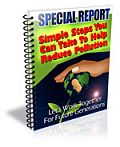Welcome to Composting Guide
Composting Worm Article

The best composting worm
from:The two types of composting worm that are best suited for worm matured composting are the Eisenia foetida or red worm and the Lumbricus rubellus. The Lumbricus rubellus is found in aged manure and matured compost. Do not use dew-worms. Dew-worms are the large sized worms found in soil and compost. Dew-worms are not likely to survive.
Where do you obtain your composting worm, you ask. If you feel like getting dirty, locate an animal stable or farmer with manure pile then collect a bag full of manure with worms. Also, check your or a friend's compost bin. You can also purchase your compost worm.
How many composting worms do you need? It has been suggested the correct worm to food waste ratio is two pounds of worms to every pound per day of food waste. This adds up to roughly 2000 worms. If this is too many worms to start with, reduce your food waste accordingly and add food waste as the composting worm population increases.
Do your worms require feeding? In basic terms, Yes! Compost food scraps like tea bags and coffee grounds, fruit and vegetable peels, and pulverized eggshells to add to your compost bin as composting worm food. Do not compost dairy, meats, grains and oily foods because of odor problems, insects and rodents. Do not attempt to compost. Plastic, glass and tin foil are not either digestible for any living being nor are they biodegradable.
Lift and pull aside some bedding then dump or add your food waste followed by burying it with the bedding to cover it up. Burying the food waste will help you to avoid any insects or odor problems. As you add food waste, bury it in a varying pattern inside of the bin from one addition to the next to avoid any bulky areas that your composting worm is not able to navigate through.
It will take between 2 and 4 months to collect and for the worms to eat and digest enough food waste along with shed their skin in your composting worm bin to reach composting maturity. As your composting worms eat and digest the food waste leaving it behind in the form of composting worm waste with the skins they shed your compost bin will slowly mature. Over a period of 2 to 4 months, your matured compost bin will transform into a thick, dark and rich soil conditioner. This soil conditioner may be used with household plants and indoor green houses or collected over a period to be used in outdoor flowerbeds, gardens or yards.



